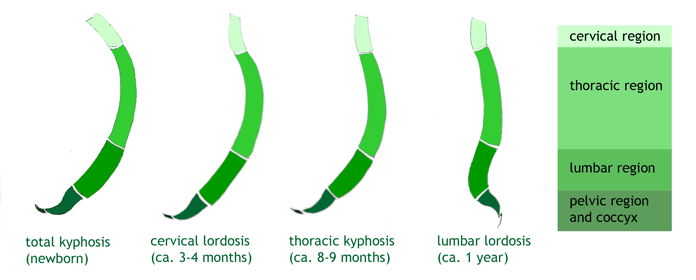
As a new parent, you may already know how important it is to keep your baby healthy and happy. But there’s one aspect of your baby’s development that you may not have considered: their spine. Your baby’s spine is essential for their growth and mobility, and it’s important to take steps to ensure that it develops properly.
Table of Contents
Why Baby Spine Development Matters
Your baby’s spine is made up of 33 vertebrae and is responsible for supporting their head and body, protecting their spinal cord, and allowing movement. The first few months of your baby’s life are crucial for spine development, as this is when the bones and muscles are still growing and forming. Proper spine development during this time can help prevent issues later on, such as poor posture, scoliosis, and muscular weakness.
How Baby Spine Development Happens
So, how does your baby’s spine develop? It all starts in the womb, where the spine begins to form around the third week of pregnancy. By the time your baby is born, their spine is made up of soft cartilage that will gradually turn into bone over time. Once your baby is born, their spine will continue to develop and grow, with the vertebrae gradually hardening into bone.
During the first few months of your baby’s life, you can help support their spine development by holding them upright and encouraging tummy time. This will help strengthen the muscles in their back and neck and promote spinal alignment. You can also look for baby gear that supports healthy spine development, such as carriers and infant seats that provide proper support.
Signs of Healthy Spine Development
How can you tell if your baby’s spine is developing properly? Here are a few signs to look for:
- Able to hold their head up by around 3 months old
- Reaches developmental milestones, such as rolling over and sitting up, on time
- Able to crawl and stand without difficulty
- Has good posture when sitting and standing
If you have concerns about your baby’s spine development, don’t hesitate to talk to your pediatrician. They can help assess your baby’s development and provide guidance on steps you can take to support healthy spine growth.
Conclusion
Your baby’s spine development is a crucial aspect of their growth and mobility. By understanding how the spine develops and taking steps to support healthy growth, you can help set your baby up for a lifetime of good posture, strength, and mobility.
Frequently Asked Questions
Q: How can I support my baby’s spine development?
A: Encourage tummy time and hold your baby upright to help strengthen their back and neck muscles. Look for baby gear that provides proper spine support, such as carriers and infant seats.
Q: When should my baby be able to hold their head up?
A: Around 3 months old is when most babies are able to hold their head up on their own.
Q: Are there any signs that my baby’s spine development may not be progressing as it should?
A: If your baby is not meeting developmental milestones on time, has difficulty crawling or standing, or has poor posture when sitting or standing, you may want to speak with your pediatrician.
Q: Does using baby gear like swings or bouncers affect spine development?
A: It’s important to choose baby gear that supports healthy spine development. Look for gear that allows your baby to sit upright with proper support and avoid gear that places your baby in a slouched or reclined position for extended periods of time.
Q: Can chiropractic care help support my baby’s spine development?
A: There is limited research on the effectiveness of chiropractic care for babies, and it’s important to discuss any concerns with your pediatrician before seeking chiropractic care for your baby.
